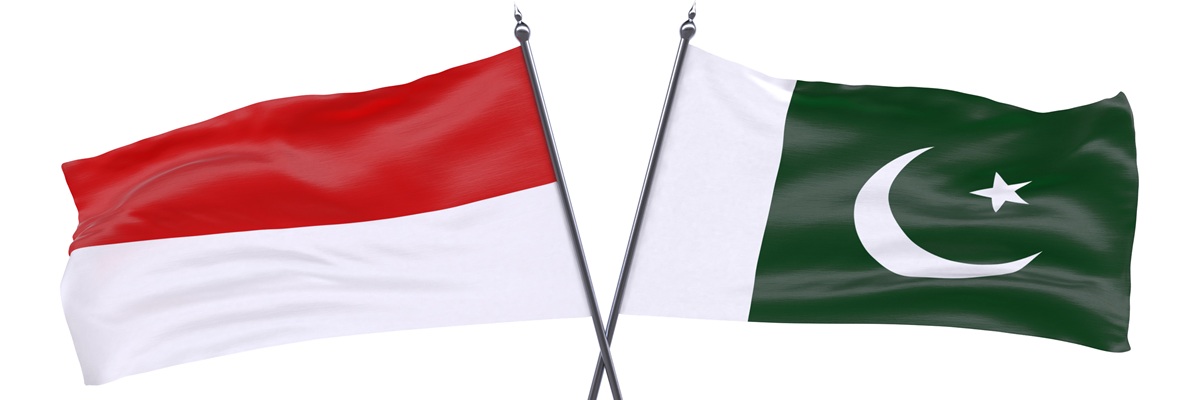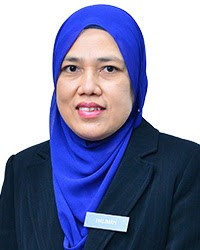Defense & Security
Civil-Military Relations in Transition: Learning from Indonesia’s Democratic Reform to Curtail Pakistan’s Military Dominance in Politics and the South Asia Region.

Image Source : Shutterstock
Subscribe to our weekly newsletters for free
If you want to subscribe to World & New World Newsletter, please enter
your e-mail
Defense & Security

Image Source : Shutterstock
First Published in: Sep.19,2025
Sep.19, 2025
We explore a crucial comparative study between Indonesia and Pakistan, which have long histories of military intervention in politics. Written by Muhammad Younus and colleagues, it seeks to answer a pressing question: How can Pakistan reduce military dominance in its politics by learning from Indonesia’s democratic reform? The work's central theme is the struggle between military power and civilian supremacy. By analyzing Indonesia’s successful democratization after Suharto’s fall in 1998 and comparing it with Pakistan’s repeated cycles of military rule, the authors highlight institutional, political, and social reforms that can help Pakistan overcome entrenched interventionism.
Military Rule in Pakistan: Historical Roots and Persistence
Let's trace Pakistan’s persistent military dominance to its security-centric founding context. From independence in 1947, Pakistan faced border conflicts with India and a fragile political leadership that left a power vacuum. The deaths of Jinnah and Liaquat Ali Khan deprived Pakistan of strong civilian leaders, allowing the military to step in as guardian of national survival.
Other factors reinforced this role:
Border insecurities – the wars with India (1947–48, 1965, 1971, and later crises) created a perception that only the army could guarantee sovereignty.
Geopolitics of the Cold War – Pakistan’s strategic location drew U.S. and Western support, channeling resources to the military rather than civilian governance.
Weak political institutions – fragmented elites and fragile parties enabled military takeovers in 1958, 1977, and 1999.
Economic and business roles of the military – Pakistan’s military developed vast commercial interests, strengthening its autonomy from civilian governments.
As a result, Pakistan has spent nearly half its history under direct military rule, with civilian governments often overshadowed by the so-called establishment or deep state. This hybrid arrangement has created enduring instability and undermined democratic consolidation.
Indonesia’s Trajectory: From Military Authoritarianism to Reformasi
In contrast, Indonesia experienced a different but comparable pattern of military dominance. After independence in 1945, the Indonesian National Armed Forces (TNI) played a founding role in defending sovereignty. Under Sukarno’s Guided Democracy (1957–65), the military expanded its influence, but during Suharto’s New Order (1967–1998), the military became fully entrenched in politics, bureaucracy, and business.
The military’s “dual function” doctrine allowed officers to control defense and governance. Civil liberties were suppressed, and military-backed elites monopolized power. However, Suharto’s collapse in 1998 amid economic crisis and mass protests triggered the Reformasi era, which brought sweeping democratic reforms: Military representatives were removed from parliament. The TNI was separated from the police and confined to defense roles. Civil society and student movements mobilized to keep the military in check. Successive civilian governments gradually asserted constitutional authority. While challenges remain, Indonesia is now regarded as one of the most successful cases of democratic transition in Southeast Asia.
Comparative Themes Between Indonesia and Pakistan
We identify multiple comparative themes that connect and contrast Indonesia and Pakistan. These themes highlight similarities in their historical trajectories and expose the structural differences that explain why Indonesia successfully reduced military intervention while Pakistan continues to struggle.
- Muslim-Majority Identity and Political Legitimacy
Both Indonesia and Pakistan are Muslim-majority states, and Islam plays a central role in legitimizing governance. In Pakistan, Islam was a founding ideology: the creation of Pakistan in 1947 was justified as a homeland for South Asian Muslims. As a result, the military often presents itself as the guardian of Pakistan’s Islamic identity and territorial integrity, using religion to strengthen its political authority. For instance, General Zia-ul-Haq’s military regime (1977–1988) fused Islamization with military rule, giving the armed forces a dual role as defenders of both faith and nation. Islam also permeates social and political life in Indonesia, but its role in legitimizing military dominance has weakened. Despite being the largest Muslim-majority country in the world, Indonesia developed a more pluralist political identity under Pancasila ideology, which emphasized unity and diversity. This pluralism limited the military’s ability to monopolize religious legitimacy. Thus, while both militaries operated in religious societies, Pakistan’s military more successfully embedded itself as a religious-political actor than Indonesia’s TNI.
- Colonial Legacies and Institutional Development
Colonial experiences profoundly shaped state institutions. Indonesia’s 350 years under Dutch rule created a centralized but rigid bureaucracy, while Pakistan’s British colonial legacy emphasized indirect rule through local elites. In Indonesia, the Dutch left behind weak political institutions but a militarized control structure, which the TNI easily adopted after independence. In Pakistan, the British institutional legacy emphasized bureaucracy and military professionalism, but weak democratic roots allowed the army to dominate once independence brought political instability. Both states inherited fragile democratic institutions at independence. Still, Indonesia’s authoritarian consolidation under Suharto created a long, stable period of military dominance, whereas Pakistan experienced repeated coups and oscillations between military and civilian governments.
- Military Dictatorships and Modes of Authoritarianism
Both countries experienced prolonged military dominance, but the nature of their authoritarianism differed. In Indonesia, Suharto’s New Order (1967–1998) created a centralized, corporatist system where the military had constitutional political space under the “dual function” doctrine. Under a stable authoritarian order, the TNI occupied bureaucratic, political, and business roles. Citizens experienced repression, but the system provided economic growth and relative stability until the 1997–98 Asian financial crisis triggered a collapse. In Pakistan, military rule has been more fragmented and cyclical. Generals Ayub Khan, Zia-ul-Haq, and Pervez Musharraf seized power through coups, justifying intervention as necessary to restore stability. However, no institution was as stable as Suharto's system. Instead, Pakistan alternated between weak civilian governments and recurring military takeovers. The instability prevented the military from being permanently curtailed, as civilian institutions remained fragile.
- Geopolitics and the Cold War
Indonesia and Pakistan were strategically significant during the Cold War, but their alignments diverged. Pakistan aligned closely with the United States, joining alliances like SEATO and CENTO. As a frontline state against communism and later against the Soviet invasion of Afghanistan, Pakistan’s military received significant financial and military aid. This external support strengthened the army as an autonomous actor, independent of civilian oversight. Indonesia, under Sukarno, initially pursued non-alignment and even leaned toward the socialist blocs. But after the failed 1965 coup attributed to communists, Suharto realigned Indonesia with the West, becoming a key anti-communist ally. Unlike Pakistan, however, Indonesia’s external support did not give the TNI unchecked autonomy in the long run. When Suharto fell, the international community supported democratic reform, not military dominance. Thus, while both militaries were empowered by Cold War geopolitics, Pakistan’s international patronage entrenched military supremacy, whereas Indonesia’s geopolitical reorientation facilitated eventual reform.
- Demography and Population Pressure
Both Indonesia and Pakistan are densely populated developing countries. High population growth, urbanization, and inequality have strained governance. In Indonesia, the population pressure was partly managed through economic growth under Suharto and decentralization after democratization, though inequality and corruption remain challenges. In Pakistan, population growth and poor governance deepened social unrest. Military regimes often justified intervention by claiming that civilian governments failed to manage these pressures. Population dynamics thus fueled instability in both countries, but Indonesia’s reformist elites turned these pressures into momentum for democratization, while Pakistan’s elites often relied on military backing instead.
Civil Society and Public Attitudes
Civil society is a critical difference. In Indonesia, students, NGOs, and media mobilized strongly during the 1997–98 crisis. Their sustained activism ensured that reforms were not reversed after Suharto’s fall. Public opinion strongly supports civilian supremacy, and the memory of military abuses under Suharto reinforces this sentiment. In Pakistan, civil society is weaker and fragmented. While lawyers’ movements and urban middle-class activism have occasionally resisted authoritarianism (e.g., the Lawyers’ Movement of 2007–09), civil society has not been consistently able to constrain the establishment. However, recent shifts show rising criticism of military interference, suggesting potential for change.
Public Mindsets: Shifts in Perceptions
Another contribution of this analysis is the changing public attitudes in both countries. In Pakistan, regime changes (such as Imran Khan’s ouster) have shifted from individualistic to collective voting behavior, where people increasingly prioritize national over personal benefits. A shift from state-centric to people-centric perspectives, demanding governance that serves citizens rather than the state or establishment. Growing criticism of military involvement in politics is unprecedented in Pakistan’s history. Stronger participation in elections, with citizens using the ballot to challenge establishment influence. Calls for a new social contract, clarifying the responsibilities of political and military institutions. In Indonesia, public opinion strongly favors civilian leadership and views the military’s role as limited to national defense. While some sectors still favor military involvement in anti-corruption efforts, the dominant sentiment is democratic and reformist.
Additional Regional Perspectives: Bangladesh, Myanmar, and Thailand
While this study focuses on Indonesia and Pakistan, a broader South and Southeast Asian perspective reveals that civil–military contestation is not unique to these two countries. Bangladesh, Myanmar, and Thailand provide parallel yet distinct experiences of military intervention in politics, enriching the comparative landscape.
Bangladesh
Since its independence in 1971, Bangladesh has struggled with repeated military interventions. Coups in 1975 and 1982 entrenched the army as a dominant political actor, often presenting itself as the guardian of national stability. Like Pakistan, the military developed political parties and cultivated influence even during civilian rule. However, unlike Indonesia’s post-1998 trajectory, Bangladesh has oscillated between civilian governments led by rival parties (Awami League and BNP) and military-backed caretaker administrations. The persistence of confrontational party politics provides fertile ground for military influence, similar to Pakistan’s fragile democracy.
Myanmar
Myanmar represents one of the most entrenched military-dominated systems in the region. Since the 1962 coup, the Tatmadaw institutionalized military supremacy under the guise of “discipline-flourishing democracy.” Even during the 2011–2020 hybrid transition, the constitution reserved parliamentary seats and key ministries for the military, limiting civilian authority. The 2021 coup confirmed the Tatmadaw’s unwillingness to cede real power. Compared to Indonesia’s Reformasi and Pakistan’s hybrid arrangements, Myanmar illustrates a worst-case scenario: the military refuses reform and resists domestic and international pressure.
Thailand
Thailand’s modern political history is punctuated by repeated coups (more than a dozen since 1932). The Thai military often positions itself as the arbiter of political conflict, stepping in during crises and withdrawing after resetting political rules. The 2014 coup, followed by the 2017 constitution, institutionalized military oversight of civilian politics. Unlike Pakistan’s Islam-centered legitimacy or Indonesia’s nationalist developmentalism, Thailand’s military has leaned on monarchy-centered legitimacy and nationalism to justify interventions. Despite periods of electoral democracy, the military’s entrenched influence makes Thailand comparable to Pakistan in terms of cyclical authoritarianism, but distinct from Indonesia’s relatively consolidated democratic transition.
Recommendations for Pakistan and Other South Asian Countries
We draw from Indonesia’s reform success to propose recommendations for Pakistan. These can be grouped into political leadership, institutional reform, military restructuring, and civil society engagement.
Strengthen Civilian Leadership and Authority
Pakistan’s repeated political crises stem partly from weak leadership and fragmented parties. To emulate Indonesia, Pakistan’s leaders must: Assert authority over military appointments, ensuring that promotions and postings reflect professional criteria rather than political manipulation. Demonstrate unity among parties by agreeing not to invite or legitimize military intervention against rivals. In Indonesia, elite consensus was critical to sidelining the TNI. Build legitimacy through governance performance, reducing the military’s justification for intervention.
Reduce the Military’s Commercial Empire
The Pakistan Army runs one of the world’s largest military-business complexes (e.g., Fauji Foundation, Army Welfare Trust). This gives the military financial independence and political clout. We recommend: Gradual divestment of military-run businesses to civilian authorities. Transparent auditing of military-owned enterprises. Laws restricting the army’s involvement in commercial ventures. Indonesia pursued similar reforms by curbing TNI’s business interests after 1998, a move Pakistan could replicate.
Pursue Constitutional and Institutional Reforms
Civilian supremacy must be enshrined legally. Key steps include: Amending the constitution to clarify the military’s defense-only role. Strengthening parliamentary committees on defense and national security to provide oversight. Enhancing judicial independence to protect civilians from military overreach. Indonesia’s constitutional amendments and reforms limiting TNI’s legislative seats offer a model.
Professionalize the Military
A professional military is less likely to interfere in politics. Recommendations include: Reforming military training curricula to emphasize apolitical professionalism. Enhancing civilian expertise in defense policy, reducing dependence on military decision-making. Encouraging cross-branch appointments to reduce the Army’s dominance over other services (Navy, Air Force).
Empower Civil Society and Media
Civil society pressure was a decisive factor in Indonesia’s Reformasi. For Pakistan: NGOs, lawyers, students, and independent media must be supported to demand transparency and accountability. Educational reforms should foster democratic values, encouraging citizens to resist authoritarianism. Digital platforms should be used to strengthen civic activism and counter establishment narratives.
Encourage Civil-Military Dialogue and Trust-Building
Instead of open confrontation, Pakistan must create structured spaces for civilian-military dialogue. These should: Clarify roles and responsibilities. Build trust so the military sees its institutional strength as linked to democratic stability. Encourage joint decision-making on security issues within constitutional limits.
International Support for Reform
Indonesia benefited from international backing after Suharto’s fall. Similarly, Pakistan’s reform agenda would require: External partners emphasizing democratic reforms in aid and cooperation. Regional diplomacy reduces Pakistan’s security anxieties, often fueling military dominance.
Conclusion
Civil-Military Relations in Transition is both a scholarly contribution and a practical guide. Juxtaposing Indonesia’s reformist success with Pakistan’s struggles shows that military interventionism is not inevitable but can be curtailed through leadership, reform, and public mobilization. For Pakistan, the Indonesian example offers hope and caution: reforms require political consensus, a strong civil society, and an unwavering commitment to democratic norms. Without these, cycles of intervention may persist. With them, however, Pakistan could achieve the same democratic consolidation that Indonesia has pursued since 1998. The article emphasizes that sustainable democracy rests on civilian supremacy, institutional reform, and citizen empowerment. Only by embedding these principles can Pakistan move toward stable, democratic governance and curtail the political role of its military establishment.
First published in :
World & New World Journal

Muhammad Younus graduated in 2019 from the Karachi Institute of Economics and Technology University in Karachi, Pakistan, and got a Bachelor’s degree in Computer Science. The four-year undergraduate program in Computer Science formed the basis of my perseverance towards achieving an in-depth knowledge in the field. After graduation, I worked for the past few years as a business IT analyst in the product and research development of a logistics startup in Pakistan called TPL Logistics. We aim to Digitize Logistics Operations in Pakistan from the First Mile to the Last Mile. After this, I graduated in 2024 from the Universitas Muhammadiyah Yogyakarta in Yogyakarta, Indonesia, and got a Master’s Degree in Government Science. My research interest is transforming governance and the public sector through technology. This Experience has given me confidence and also kindled a desire to do research. The interdisciplinary nature has convinced me to take this decision as it is the ideal choice for an exciting research career. At the same time, I am confident of contributing to the ongoing work. By working under the guidance of a distinguished Team, I shall certainly be able to exploit my potential to the fullest. Muhammad Younus is a doctoral researcher in Government Science at Universitas Muhammadiyah Yogyakarta (UMY), Indonesia, with a background in Computer Science and Public Administration. His work focuses on digital governance, citizen participation, and sustainable public service innovation across Southeast and South Asia. He has authored over 60 international publications.

Professor Halimah Abdul Manaf is a distinguished academic in the field of public management and currently serves as the Deputy Director of the Asian Research Institute for Corporate Governance (ARICG). She is also the former Dean of the School of Government at Universiti Utara Malaysia (UUM). Professor Halimah holds a PhD in Public Management from the University of Hull, United Kingdom, and completed her postdoctoral fellowship at the University of Exeter, United Kingdom. Her research interests span across Strategic Public Sector Administration, Governance, Digital Participation, and Local Government. She is a member of the Executive Board of the Asia Pacific Society for Public Affairs (APSPA), serves on the editorial boards of several academic journals, and reviews manuscripts for reputable international publications such as Public Management Review, the International Journal of Public Administration, and the International Journal of Public Sector Management and Performance. In addition, Professor Halimah contributes her expertise as a strategic advisor at the state government level in Malaysia.

Prof. Dr. Dyah Mutiarin, S.IP., M.Sc. Professor of Government Science at the University of Muhammadiyah Yogyakarta ( UMY ) was elected as the Chair of the Government Science Study Program Unit (Kapsipi) for the 2024-2027 period. The woman who is familiarly called Arin was elected at the IV Kapsipi and ADIPSI (Association of Indonesian Government Science Lecturers) congress which took place in Samarinda on August 31-September 1, 2024. She replaces Prof. Dr. Achmad Nurmandi, M.Sc, Professor from UMY who has led Kapsipi since 2022-2024. Dyah Mutiarin, also known as Ibu Arin, was the first female professor at Universitas Muhammadiyah Yogyakarta (UMY). She currently teaches in the fields of Regional Autonomy Political Policy (UGM) and Tourism Political Economic Development Policy (UGM) in the master's program at UMY. She also lectures in Government Science and serves as Head of the Research and Innovation Institute at UMY
Unlock articles by signing up or logging in.
Become a member for unrestricted reading!